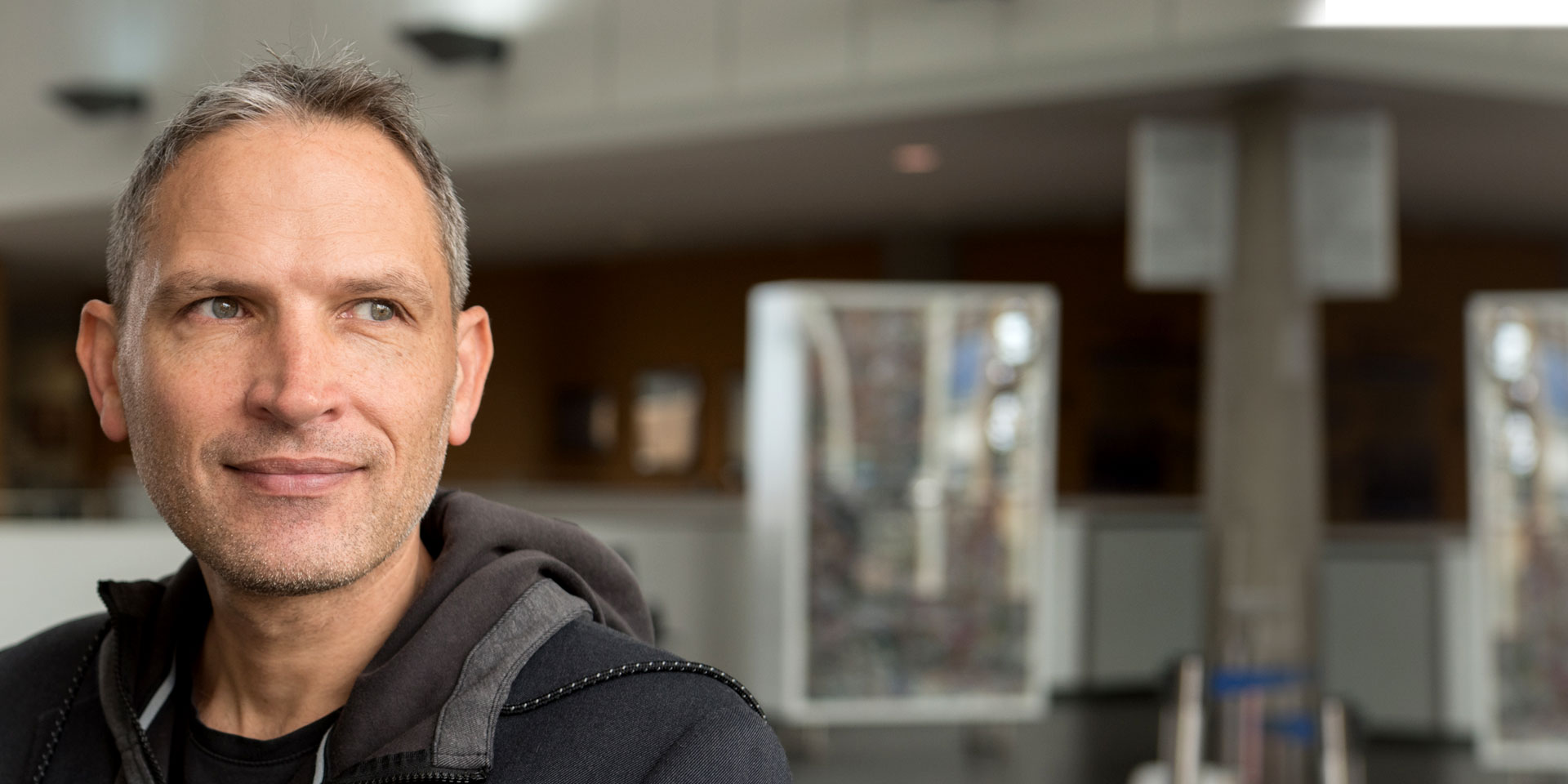Portrait of a researcher

Between neuroscience and AI
Karim Jerbi
FACULTY OF ARTS AND SCIENCES
Associate professor in the Department of Psychology
Holder of the Canada Research Chair in Computational Neuroscience and Cognitive Neuroimaging
As a child, Karim Jerbi dreamed of tackling big questions. He couldn’t decide between settling the Israeli-Palestinian conflict, solving the mystery of the Bermuda triangle, or unlocking the secrets of the brain. He is now recognized for his multidisciplinary approach that combines neuroscience and artificial intelligence (AI).
After obtaining a master’s degree in biomedical engineering in Germany and spending a few years in Europe and the U.S., the Tunisian national completed a doctorate in cognitive neuroscience and brain imaging in Paris, in addition to doing two post-doctorates in Paris and Lyon.
But he decided to settle in Montréal. “I was won over by the research ecosystem at Université de Montréal, its richness, and its multidisciplinarity,” says the holder of the Canada Research Chair in Computational Neuroscience and Cognitive Neuroimaging. This was in addition to the financial support from IVADO (Institut de valorisation des données) and the ongoing collaboration with Mila (Quebec Artificial Intelligence Institute), of which he is an associate member, which also factored into his choice.
Playing a number of roles, the professor and researcher heads up UNIQUE (Union neurosciences intelligence artificielle Québec) and co-leads the Canadian MEG Consortium, while putting his expertise at the service of other research centres.
His primary mission? Understanding brain communication in cognitive processes among healthy subjects and how they are altered in patients with psychiatric and neurological disorders. To achieve this, the scientist and his laboratory team use magnetoencephalography and electroencephalography, tools borrowed from AI.
His innovative vision is based on values of inclusivity, scientific collaboration, and rigour. “Innovation emerges at the intersection of different disciplines and cultures. As for rigour, it must be absolute, because with science, there are no shortcuts.”
What are the benefits of artificial intelligence on your research in neuroscience?
In terms of clinical research, machine learning is a real accelerator. This is the case in our work on biomarkers that differentiate healthy subjects from patients suffering from depression or schizophrenia. Thanks to the calculating power and precision of machine learning algorithms, we are identifying, among thousands of brain properties, the most discriminating, those that could be relevant biomarkers. Ultimately, beyond simple diagnosis, these results could enable the early detection of a mental or neurodegenerative illness.
Given the astonishing advances in AI, is neuroscience still relevant?
Definitely! Because beyond the two-way interaction between the fields that we are trying to re-establish, many of us, including Yoshua Bengio [a prominent research in artificial intelligence] and myself, believe in the role that neuroscience can play in the ongoing evolution of AI. Yes, it can go even further ‒ provided we integrate the most recent knowledge in neuroscience. But it’s difficult, because the two communities, which sometimes use the same terms, don’t speak the same language.
You have set the mission of changing this situation by heading up UNIQUE, isn't that right?
Exactly. One of my major objectives is to train a new generation of researchers who master both the language of AI and the language of neuroscience. To do this, our activities at the centre foster exchanges – even a merger – between the two disciplines. For example, we are asking students who receive scholarships to work with two directors, one each from AI and neuroscience. It’s an excellent way to become “bilingual”!